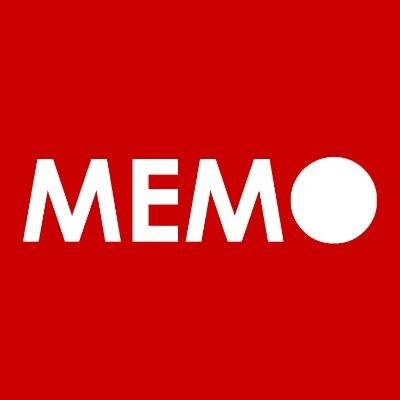Saudi Arabia was one of a number of countries whose head of state failed to attend the extraordinary summit of the Organisation of Islamic Cooperation (OIC) held in Istanbul this week. The absence of the self-proclaimed “Custodian of the Two Holy Mosques” at a conference to discuss the fate of the third holy mosque in Islam — Al-Aqsa Mosque in occupied Jerusalem — was met with raised eyebrows, although many were not surprised at all.
There was speculation that King Salman’s absence was due to Saudi Araba’s refusal to share a platform with Qatar and, above all, to keep good faith with US President Donald Trump. Though Trump’s recognition of Jerusalem as the capital of Israel broke with international law and consensus, it seemed that the Kingdom wanted no part in a universal rebuke for the American leader.
The Saudi monarch did try to distance himself somewhat from Trump’s announcement, reiterating the Kingdom’s stated commitment to a Palestinian state with East Jerusalem as its capital during a televised address to the country’s Shura (Consultative) Council in Riyadh on Wednesday. This took place while the world’s main pan-Islamic body held its summit in Turkey.
Nevertheless, Riyadh’s apparent indifference to the fate of Jerusalem has been so uncharacteristically baffling that even pro-Saudi commentators in America have been mystified by the muted response. Prominent US officials and commentators had actually anticipated a Saudi backlash. “The protector of Islam and home to its two holiest sites,” wrote Robert Satloff, “[was] a good place to judge the impact of President Donald Trump’s recognition of Jerusalem as Israel’s capital on US interests in the region.”
Read: What next after Bin Salman has ordered Abbas to surrender to Israel?
The real question, according to the director of the Washington Institute for Near East Policy — a think tank allied closely to the UAE and Saudi Arabia — was how “America’s friend’s one step removed from the circle of the Palestinian-Israeli conflict would react.” Satloff said that he and a delegation of 50 supporters of the think tank who were in Riyadh to meet with Crown Prince Mohammad Bin Salman and other senior Saudi officials were anticipating “thunderous outrage” at Trump’s announcement. Instead, what they found to their surprise was a royal family unconcerned about the fate of Jerusalem; a crown prince, he said, “who offered a very different vision for both the Saudi-American relationship and a potential for Saudi-Israeli partnership.”
Describing his encounter with the Saudi royals, the think tank chief had nothing but high praise for Bin Salman. “Jerusalem was never uttered” during their meetings, which took place while Trump made his televised declaration about the holy city. “The US delegation had spent five hours in meetings with three different Saudi ministers, discussing everything from crises with Yemen, Qatar and Lebanon, to the kingdom’s ambitious ‘Vision 2030’ reform programme, to the possible public offering of the state oil company Aramco,” Satloff wrote in an article for Foreign Policy magazine.
Mystified by the silence over Jerusalem, the US delegation, according to Satloff, were anticipating the Saudis to “unload” their frustration during their final meeting of the day with the Secretary General of the Muslim World League. “Surely,” he mused, “the head of the MWL would denounce America’s assault on the sanctity of Muslim control of Jerusalem.”
How long before the Israeli flag flies over Riyadh?
To his “amazement” Jerusalem never passed the lips of the Saudi officials. Instead, they “noted with pride” their friendships with rabbis in Europe and America, the visit that had been made to a synagogue in Paris, and the interfaith dialogue to which the Saudis were now committed. The US delegation went to bed that evening confident that they would witness the “fire and brimstone of the old Saudi Arabia” once the details of Trump’s announcement were known.
The following day they had an audience with none other than the Crown Prince himself. The 32 year old Mohammad Bin Salman is the de-facto ruler of the Kingdom, and he “had a lot to say” explained Satloff, although it wasn’t apparent that Jerusalem was one of the issues bothering him. “If we hadn’t asked him directly about Trump’s announcement, it may never have come up. He certainly didn’t come to the meeting to vent [his anger].”
Critics have suggested that Saudi silence over Jerusalem is a reflection of Riyadh’s abandonment of the Palestinian cause. Under the new alliance between Bin Salman, Trump and Israel’s Benjamin Netanyahu, Riyadh appears to have adopted Israel’s vision for settling the conflict in Palestine.
The proposal apparently backed by the Saudis will grant Abu Dis, a town to the south-east of Jerusalem, as the future capital of an independent state of Palestine instead of occupied East Jerusalem. Palestinians will then have a non-contiguous statelet in the West Bank and Gaza Strip over which they will have only partial sovereignty; the majority of Israeli settlements in the West Bank will remain. Furthermore, the proposal does not grant Palestinian refugees and their descendants living in the diaspora their currently legitimate right to return to their land and homes in what is now Israel.
Should we be surprised? Optimists sensed a glimmer of hope that Saudi Arabia, while avoiding public condemnation of Trump, was privately expressing its displeasure to the Americans as forcefully as it could. That doesn’t seem to have been the case. Bin Salman’s abandonment of not only the Palestinian cause but of Jerusalem itself, a holy city to 1.6 billion Muslims worldwide, has completely disqualified the Kingdom from making any claim about protecting Islam and leading the Muslim world.
The views expressed in this article belong to the author and do not necessarily reflect the editorial policy of Middle East Monitor.

![Saudi Arabian King Salman bin Abdulaziz Al Saud (L) and the Crown Prince Mohammed bin Salman Al Saud in Riyadh, Saudi Arabia on 13 December 2017 [Bandar Algaloudl/Anadolu Agency]](https://i0.wp.com/www.middleeastmonitor.com/wp-content/uploads/2017/12/2017_12-13-king-salman20171213_2_27492622_28814303-1.jpg?fit=920%2C613&ssl=1)







